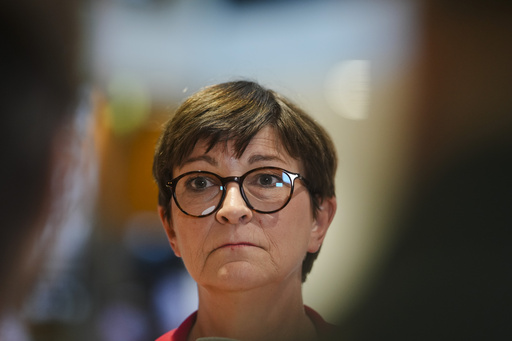The success of the Alternative for Germany party in two state elections has created challenges for Chancellor Olaf Scholz’s government and put pressure on the country’s main opposition party to navigate a way to govern two eastern regions without involving the far-right party. On Sunday, AfD, led by Björn Höcke, became the first far-right party to win a state election in post-World War II Germany in Thuringia, while finishing closely behind the mainstream conservative Christian Democratic Union in Saxony. This outcome was a blow to the parties in Scholz’s governing coalition, which collectively received less than 15% of the vote.
The discontent with the national government’s internal conflicts, economic struggles, anti-immigration sentiments, and doubts about German military support for Ukraine have fueled support for populist parties in the less prosperous former communist eastern regions of Germany. Despite AfD’s success, no party is willing to form a government with them, likely necessitating alliances with other parties to govern these states.
The recent election results have added to the challenges facing Scholz’s coalition, following poor performances in the European Parliament election earlier in the year. It remains uncertain whether the government can reverse its fortunes with the national election looming in just over a year. Another state election in Brandenburg is scheduled for September 22, which could further complicate matters for the governing parties.
The elections have also presented dilemmas for the CDU, the leading party in national polls. AfD’s significant presence in the state legislatures, particularly in Thuringia, could obstruct the formation of stable governments. The need for unconventional coalitions has become more pronounced, with even unexpected alliances being considered to secure majorities in the state legislatures.
In Thuringia, the prospect of a coalition including the CDU, Scholz’s party, and the new leftist Sahra Wagenknecht Alliance lacks a majority, requiring possible collaboration with the Left Party, which has so far been rejected. The rise of AfD in eastern Germany has forced political parties to engage in novel coalition-building strategies, illustrating the challenging landscape of German politics.


